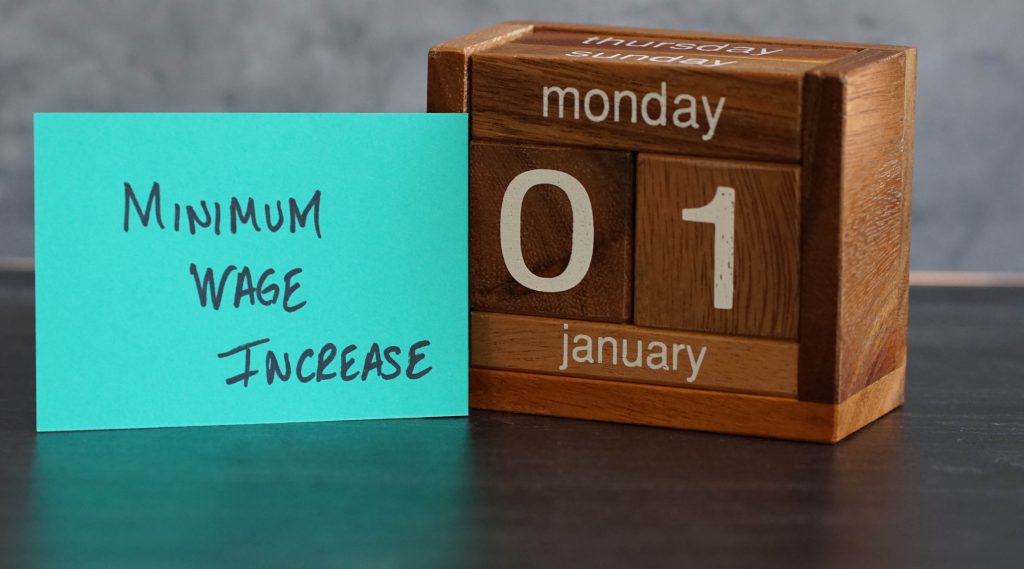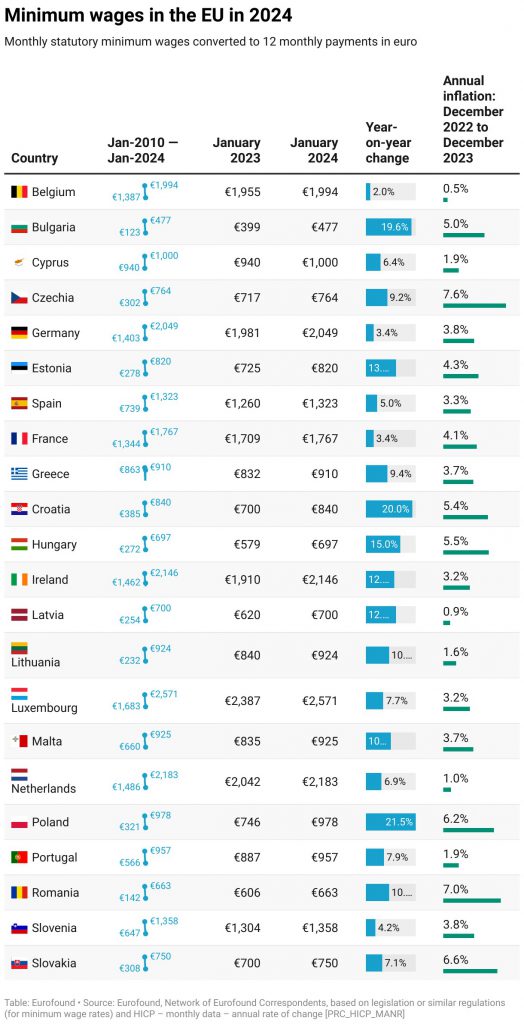Malta’s minimum wage stuck in 12th place

Despite a significant 10.8% annual increase in 2024, Malta’s minimum wage remained stuck in 12th place in the EU league table comprising 22 countries. Austria, Denmark, Finland, Italy and Sweden are not included as they have no statutory minimum wage.
In a comparative exercise carried out by Eurofound it transpires that from January 1, 2023 to the corresponding day of this year, Malta’s minimum wage rose from €835 to €925 monthly. This upward revision comprised the €12.81 COLA as well as the increase decided by the low wage commission.
However, when compared to other EU countries the 10.8% rise in Malta was far from spectacular, in the wake of the fact that in Poland the minimum wage rose by 21.5%, in Croatia 20%, Bulgaria 19.6%, Hungary 15%, Estonia 13.1%, Latvia 12.9% and Ireland 12.4%.
The lowest increases were in Belgium (2%), France and Germany (3.4%), Slovenia (4.2%) and Spain (5%). However, these countries have a significantly higher minimum wage compared to Malta, such as Germany (€2,049) and Belgium (€1,994). Luxembourg which in 2023 had the highest minimum wage at €2,387 monthly had an annual increase of 7.7% up to €2,571 monthly – almost three times Malta’s minimum wage.
The Eurofound ranking also includes the rate of inflation to give some context. In this respect Malta ranked in the middle with a rate of 3.7% which was nearly half the respective rate in Czechia at 7.6% but much higher than Belgium which had the lowest inflation at 0.5%. In layman’s terms the higher the inflation rate, the weaker is the employees’ spending power.

The statistic also gives an overview of the long-term change from 2010 onwards. During these 14 years Malta remained in 12th place but the gap with the countries at the bottom narrowed significantly. In 2010 Malta’s minimum wage was €660 monthly, which was more than five times that in Bulgaria which stood at €123. However, the gap has been halved with the respective value in Malta rising to €925 while that in Bulgaria has more than trebled as is now at €477. Furthermore, countries like Romania have moved forward at a faster rate with their minimum wage rising from €142 in 2010 to €663 in 2024.
While agreeing with the increase in the minimum wage, UHM Voice of the Workers insists that the best way forward is through collective bargaining. In this way wages are increased progressively and on merit while and at the same time the relativity of the salary scales is not distorted. On the other hand, if the minimum wage is increased arbitrarily from time to time there is a risk of undermining the very existence of collective bargaining.
